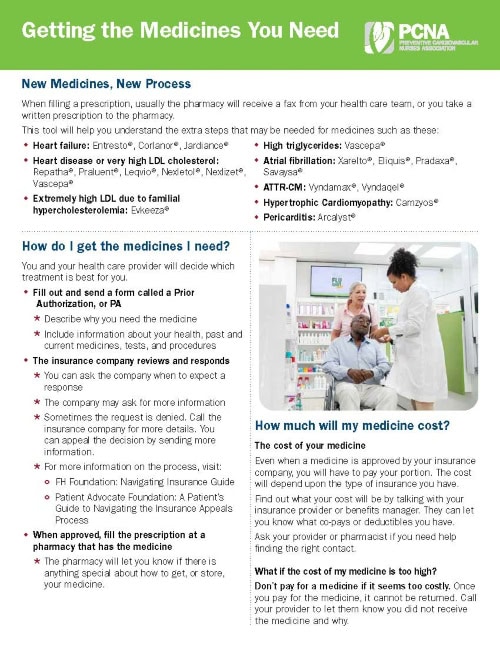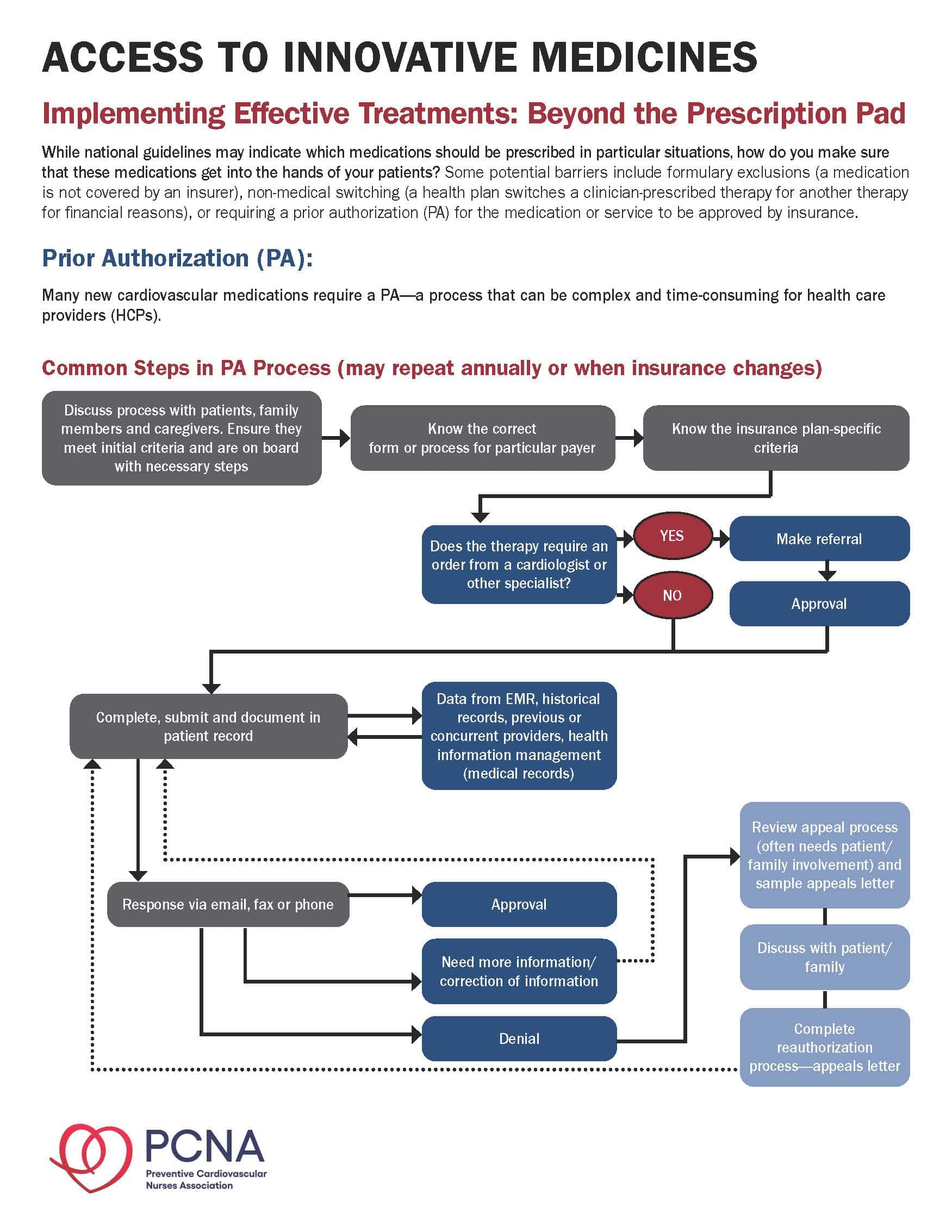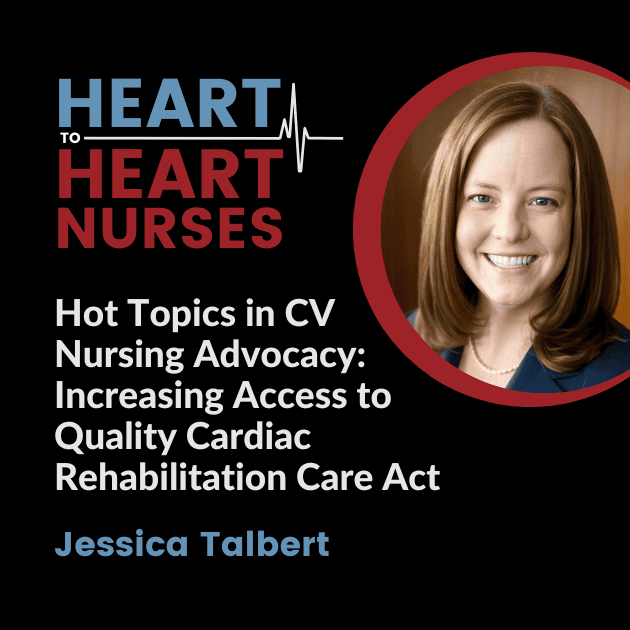Hear from Jessica Talbert, the Director of Federal Advocacy for the American Association of Nurse Practitioners (AANP), about the Increasing Access to Quality Cardiac Rehabilitation Care Act of 2023.
Jessica walks listeners through the importance of this bill, how it expands upon the previously approved Cardiac Rehab Bill (in 2018), and why it is important for our patients.
Episode Resources
- CDC Million Hearts
- Nurse Practitioners: A Solution to America’s Primary Care Crisis Study
- MedPAC Health Care Spending and the Medicare Program Study (PDF)
- AANP Action Center for Cardiac Rehab
- PCNA Advocacy Training Course – From Care to Action: Basics of Advocacy
Geralyn Warfield (00:20)
Welcome to today’s episode, the final in a four-part mini-series focused on advocacy in nursing and current policies that can affect you and your cardiovascular patients. On our previous episode, we walked through the Inflation Reduction Act and what that could mean for our patients. In today’s episode, we’re going to focus on another bill that’s related to cardiac rehab. I’m very excited to have today’s guest with us, Jessica Talbert. Jessica, could you introduce yourself to our audience, please?
Jessica Talbert (00:47)
Absolutely, and thank you so much for having me, I really appreciate the ability to be here today with you. My name is Jessica Talbert and I am the Director of Federal Advocacy for the American Association of Nurse Practitioners and AANP represents the over 385,000 nurse practitioners nationwide.
Geralyn Warfield (01:06)
So, I’m sure our audience recognizes the expertise that we have at the table today. And we’re going to go ahead and start talking about this recent bill that affects cardiac rehab. And the bill is called Increasing Access to Quality Cardiac Rehabilitation Care Act of 2023. Now that’s quite a mouthful, but I bet you could put it in simpler terms for our audience.
Jessica Talbert (01:29)
Yes, it’s actually a really easy and straightforward bill. So, this bill would authorize nurse practitioners, physician assistants, and clinical nurse specialists to order cardiac and pulmonary rehab services for Medicare patients.
Geralyn Warfield (01:45)
Well, that sounds like a very simple explanation of this, but what brought us to this particular bill?
Jessica Talbert (01:52)
Yeah. So, this bill actually builds upon a previous bill that was called the Bipartisan Budget Act of 2018. I usually refer to it as the BBA. The BBA included, was a really big bill with a bunch of different provisions, but one of the provisions included the authorization for those same providers, so NPs, PAs, and CNSs to be able to supervise cardiac and pulmonary rehab.
And that was an authorization to start in 2024, even though the bill was passed in 2018. So that authorization for supervision just kicked in at the beginning of this year for Medicare patients.
Geralyn Warfield (02:37)
So, thinking about what our providers, our clinicians that are listening to this podcast might take away from this application in practice. Have we already seen the application of this prior to 2024 or are we just now starting to see this being applied?
Jessica Talbert (02:56)
So, for Medicare, it is just starting for supervision starting in 2024. A lot of the states for Medicaid and for private pay, they tend to also follow Medicare rules. So, for the vast majority of what we know, is that the vast majority of payers follow the Medicare rules for cardiac and pulmonary rehab. And so, it’s our understanding that for the vast majority of patients, this is a new authorization for an NPEPA or CNS to supervise cardiac and pulmonary rehab.
Geralyn Warfield (03:34)
Well, that’s excellent information and I know we have a lot to talk about today, but we’re going to take a quick break and then we will be right back.
We’re back to continue our conversation about the 2023 Cardiac Rehab Bill. And Jessica, we’re so excited that you’ve walked through the history that got us to where we are today, but what does the current bill mean for cardiovascular practitioners and also to the patients that they serve? Why is this new bill so important?
Jessica Talbert (03:58)
This bill is really important because, you know, statistics that probably most of the listeners on this podcast are familiar with. You know, heart disease is the leading cause of death in the United States. Over 700,000 Americans die every year from heart disease and managing and treating heart disease and related risk factor costs the United States over $320 billion per year.
Now, looking at COPD, COPD is the leading cause of death with about 150,000 deaths annually. And COPD costs about $50 billion a year in direct and indirect cost. So, we’re talking about not just a human implication as far as quality of life, the longevity of their life, but we’re also talking about a really large strain on the healthcare system financially, because these are diseases that are very costly to treat.
And so, we know that cardiac and pulmonary rehabilitation programs work. We know based on a ton of different studies that patients that have access to these programs have fewer recurrences of heart attacks, they have less hospital readmission, they’re more likely to adhere to medications.
And so, we know that these programs save lives and save money. The problem is, is that a lot of the patients who are actually eligible for these programs. So, in the Medicare programs, there are a list of various conditions that qualify a patient for either cardiac or pulmonary rehab. So there is a, so you know, like a pot of patients that we know that are eligible for these services, not every Medicare patient is eligible. And what we know is about only 25% of eligible Medicare patients receive access to cardiac rehab programs. And for pulmonary rehab, it’s only about 3%. So, if we can get these eligible patients into these programs, programs that we know have really positive outcomes, it will have a really positive impact on the patient and the overall healthcare system as well.
Geralyn Warfield (06:26)
So, it sounds like that transition from just being able to supervise cardiac rehab to actually being able to order cardiac rehab for patients has been a huge leap forward in our ability to meet these patients’ needs. Is that accurate?
Jessica Talbert (06:42)
Yeah, you know, following the passage of the BBA of 2018, AANP came together with the American Heart Association, the American Academy of PAs, and the American College of Cardiology almost immediately after the bill passed because we all recognized that while the supervision authorization was really important, the ordering aspect was really also very important and critical to get patients access to these programs.
So, we worked together to compose legislation that would authorize NPs, PAs, and CNSs to order cardiac and pulmonary rehab. And that’s once we had that legislation when we joined together with groups such as PCNA as well as the American Lung Association, the American Nurses Association, the American Thoracic Association, WomenHeart, National Rural Health Association, and the American Association for Respiratory Care. So, you know, a lot of groups understood that the supervision authorization was just the first step, that there are several other steps beyond even just ordering. You know, there are a lot of, a lot of barriers that limit patients access to these programs
So the CDC has a program called MillionHearts, which has the goal of significantly reducing cardiac deaths. And they talk a lot about the different barriers that patients have. And it’s ordering for the services, but it’s also transportation, whether or not they have access to a program, the cost that they’re paying to access these programs.
You know, this is one of several barriers, but it’s a really important barrier. You know, the coalition of support really understood that this was critical to addressing access to cardiac and pulmonary rehab.
Geralyn Warfield (08:43)
So how would you say that NPs and PAs and CNSs are making this leap again to putting this into practice from not just being able to supervise but actually being involved in the access to cardiac rehab by some of these very diverse groups of patients?
Jessica Talbert (09:04)
So, what we know is that access, as you heard me mention, access is really limited to these programs with only 25% of eligible Medicare patients having access to cardiac rehab and only 3% for pulmonary rehab. And what research also shows is that nurse practitioners and PAs and the CNSs, I’m going to focus on nurse practitioners since that’s who we represent, nurse practitioners are key providers in a lot of the communities that don’t have access.
So, for instance, we know that 40% of Medicare patients have had a billable service by a nurse practitioner in the last year. Other studies have found, for instance, as well, that NPs are significantly more likely to care for vulnerable populations, such as non-whites, women, American Indians, the poor and uninsured, people on Medicaid, and those living in rural areas.
You will notice a lot of those groups I just mentioned are the same groups that I mentioned as having greater disparities in access to these rehabilitation programs.
And also, MedPAC, which is an organization that publishes reports on healthcare for Congress. MedPAC found that rural Medicare beneficiaries were more likely to receive all or almost all of their primary care from a nurse practitioner or APA.
And so, what that data tells us is that we are in these communities. We are providing care to these patients. And so, if we are able to have that authorization to order the services, we can help, you know, lessen those disparities that these patients are facing.
Geralyn Warfield (10:50)
I really appreciate that we talk frequently within our industry about team-based care. And in this case, we’re talking about NPs, PAs, and others being the leads in making sure that these patients do have access to and receive this kind of care that makes a huge difference for them in terms of their outcomes.
Jessica, I know we could probably talk about this for weeks and months and still not know everything about everything, but you have provided us a great overview of what the possibilities are with this new legislation.
If you could leave our audience with one key takeaway from our conversation today, what would that be?
Jessica Talbert (11:25)
So, it’s very important to engage with your members of Congress because there are so many issues facing them, especially right now as they get towards the end of the Congress, looking towards next year. Obviously, our hope is that this bill will pass this Congress, but if not, it’ll have to be reintroduced next year. And there’s so many different priorities that members of Congress are facing and just trying to get them to understand the importance of this legislation and the impact it has. And we can’t do that just on our own. For instance, it’s one of our main grassroots campaigns for our nurse practitioners to engage with their members of Congress. But members need to hear from patients and providers across the country about the need to pass this legislation.
Geralyn Warfield (12:16)
Jessica, we are so grateful to you for spending time today with us sharing information about this cardiac rehab-related bill and a call to action for us to get involved to make sure that this passes so that we have the ability to better care for the patients that we see each and every day. For our listeners you that are watching us, you can find more information about the bill and the resources that we’ve discussed in the show notes.
And another reminder that this is one of a four-part mini-series about advocacy in nursing, so we encourage you to listen or watch those other episodes as well. Again, thank you to our guest, Jessica Talbert. We’d also like to thank Amgen, Bristol-Meyers Squibb, Novartis, and Novo Nordisk for their unrestricted grant funding for PCNA’s advocacy efforts. This is your host, Geralyn Warfield, and we will see you next time.
Topics
- Advocacy
Published on
November 5, 2024
Listen on:
Related Resources








